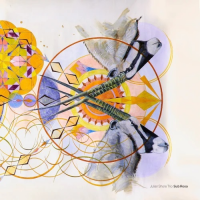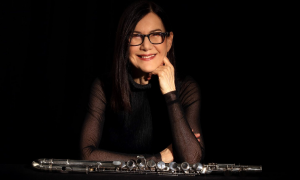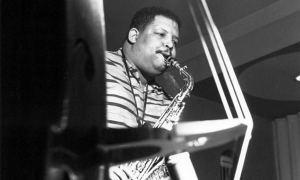Home » Jazz Articles » Interview » Meet Brian Lynch
Meet Brian Lynch
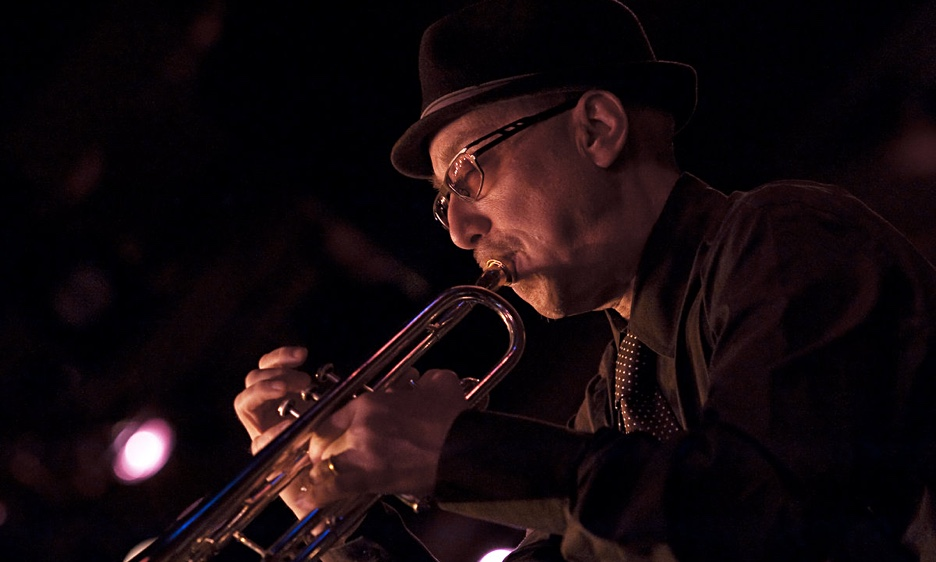
Though many of his peers have received far more attention from the public and press, the fact is that Brian Lynch is one of the most experienced and talented jazz trumpeters of his generation. Growing up in the Milwaukee area, Lynch took advantage of a healthy jazz scene there that found him playing professionally at the age of 16 and gaining valuable knowledge and seasoning through his work with local luminaries

Buddy Montgomery
piano1930 - 2009
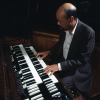
Melvin Rhyne
organ, Hammond B31936 - 2013

Charles McPherson
saxophone, altob.1939

Horace Silver
piano1928 - 2014
Lynch's brassy timbre and fiery approach to improvising make him a natural with both the salsa bands and the hard bop units on the New York scene. As a result, during the late '80s it was no surprise to find the trumpeter holding the seat of musical director in pianist

Eddie Palmieri
piano1936 - 2025

Art Blakey
drums1919 - 1990
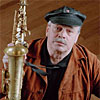
Phil Woods
saxophone, alto1931 - 2015
All About Jazz: Tell us a bit about how you became interested in jazz and when you took up the trumpet.
Brian Lynch: I was first exposed to jazz by hearing Louis Armstrong on my parents' stereo. This was in the mid-'60s (when I was VERY young) and I suppose the LP my folks used to listen to was the one with "Hello, Dolly," his monster hit. Took up the trumpet at the age of nine, in 5th grade. School band and all that, though in 6th grade a group of schoolmates and I formed a little band for the talent show at school. We were playing

Herb Alpert
trumpetb.1935

Miles Davis
trumpet1926 - 1991

John Coltrane
saxophone1926 - 1967

Ornette Coleman
saxophone, alto1930 - 2015
AAJ: Who were some of your early influences?
BL: Miles and Trane, then real quick and close together, Freddie, Lee, and Clifford. Just a bit later I started hearing Woody and Charles Tolliver, who touched me a lot. A big influence on general musical taste was hearing Cedar, Cliff Jordan, Sam Jones & Lou Hayes' Live At Boomers. I ate that up! I think from there that actually brought me to Bird and

Fats Navarro
trumpet1923 - 1950

Bud Powell
piano1924 - 1966

Blue Mitchell
trumpet1930 - 1979

Booker Little
trumpet1938 - 1961

Randy Brecker
trumpetb.1945

Barry Harris
piano1929 - 2021

Sonny Stitt
saxophone1924 - 1982

Ira Sullivan
multi-instrumentalist1931 - 2020
AAJ: Were there any particular musicians who acted as mentors towards you during the early years?
BL: Buddy, definitely. Melvin, Manty & Berkeley (see above). The head of the Jazz Department at the Conservatory, Tony King, was a great motivator and gave all of us a mission and a feeling for how important the music was & what a positive force one could be by playing it.

Sonny Stitt
saxophone1924 - 1982

Eddie Harris
saxophone, tenor1934 - 1996

Freddie Hubbard
trumpet1938 - 2008
AAJ: Your early recordings were on the Criss Cross label. How did that opportunity come about?
BL: I got a National Endowment for the Arts grant in 1986 to do a demo tape of my music, which I did at Van Gelder's with

Jim Snidero
saxophone, altob.1958

Ralph Moore
saxophone
Ray Drummond
bassb.1946

Kirk Lightsey
pianob.1937

Jay Anderson
bassb.1955

Victor Lewis
drumsb.1950
AAJ: One of the things that sets you apart from other trumpeters is your versatility, being equally versed in the jazz and Latin music areas. How do you approach the different requirements of each type of gig?
BL: I think that the controlling factor in all the forms of music I participate in comes from being a jazz musician; the sensitivity to style, attentiveness to just what's required in each playing situation—this comes from playing jazz. I've studied Latin music much in the same way I study jazz—get my feet wet playing, using my musical reflexes and observing well; then go back and listen to the music, finding the tradition and history of it, transcribing tunes & solos. In Latin music I've paid more attention to the rhythmic aspect, learning rhythms and exercises that improve my understanding of clave. So, it's really about loving it, which makes you want to get your preparation together so you can play it faithfully and well. I want to play any idiom I'm involved in—whether bebop, Latin-jazz, tipico Latin dance music, funk, avant-garde. etc.—with respect, authenticity, and love, and then be able to put my own thing into it.
AAJ: Recently you've been recording for the Sharp Nine label and your Spheres of Influence has garnered rave reviews as a smart mix of the many styles you're involved in. Tell us about how that session came together.
BL: Spheres Of Influence came about from a desire to put together in one package many of the different things I'm about musically, especially my interest in different rhythmic styles. Also, the musicians reflect who I really enjoy playing with! I thank Marc Edelman so much for giving me the opportunity to do this project, even though it was a somewhat extravagant project (as he's announced to most of the jazz world by now!). It's my proudest achievement to this point.
AAJ: I hear from Edelman at Sharp Nine that you're working on a new project for the label. Is there anything you can share regarding this upcoming release?
BL: It's going to be a quartet date (Vol.2), swinging, a mix of originals and little-known gems, not as ambitious as Spheres Of Influence but I think it will document my continuing search as a player and writer and still be "in the pocket."
AAJ: What other current activities are you engaged in that you'd like to share with our readers?
BL: I've been doing a lot of writing lately; one great association has been with the Parsons Dance Company, which has been working with live jazz with the Phil Woods Little Big Band. Phil hasn't been able to really continue with this project on a regular basis, so I've sort of become the composer/arranger/musical director for the ensemble. My original score for David Parsons' dance "Scrutiny" was premiered January 27th in Philadelphia, and we're going out on the road with it and other things this month and next. My Latin jazz group is also going great; we've had a regular gig at the Phoenix Room in Manhattan since October. It comprises myself,

Luis Perdomo
pianob.1971

Boris Kozlov
bass, acousticb.1967

Dafnis Prieto
drumsb.1974
Renato Thomas
percussion
Yosvany Terry
saxophoneTags
Interview
Brian Lynch
C. Andrew Hovan
Buddy Montgomery
Melvin Rhyne
Charles McPherson
Horace Silver, five years with {{Toshiko Akiyoshi
Eddie Palmieri
Art Blakey
Phil Woods
Herb Alpert
Miles Davis
John Coltrane
Ornette Coleman
Fats Navarro
Bud Powell
Blue Mitchell
Booker Little
randy brecker
Sonny Stitt
Ira Sullivan
Eddie Harris
Freddie Hubbard
Jim Snidero
Ralph Moore
Ray Drummond
Kirk Lightsey
Jay Anderson
Victor Lewis
Luis Perdomo
Dafnis Prieto
Renato Thomas
Yosvany Terry
Boris Kozlov
Comments
PREVIOUS / NEXT
Support All About Jazz
 All About Jazz has been a pillar of jazz since 1995, championing it as an art form and, more importantly, supporting the musicians who make it. Our enduring commitment has made "AAJ" one of the most culturally important websites of its kind, read by hundreds of thousands of fans, musicians and industry figures every month.
All About Jazz has been a pillar of jazz since 1995, championing it as an art form and, more importantly, supporting the musicians who make it. Our enduring commitment has made "AAJ" one of the most culturally important websites of its kind, read by hundreds of thousands of fans, musicians and industry figures every month.








 Buy Now
Buy Now


